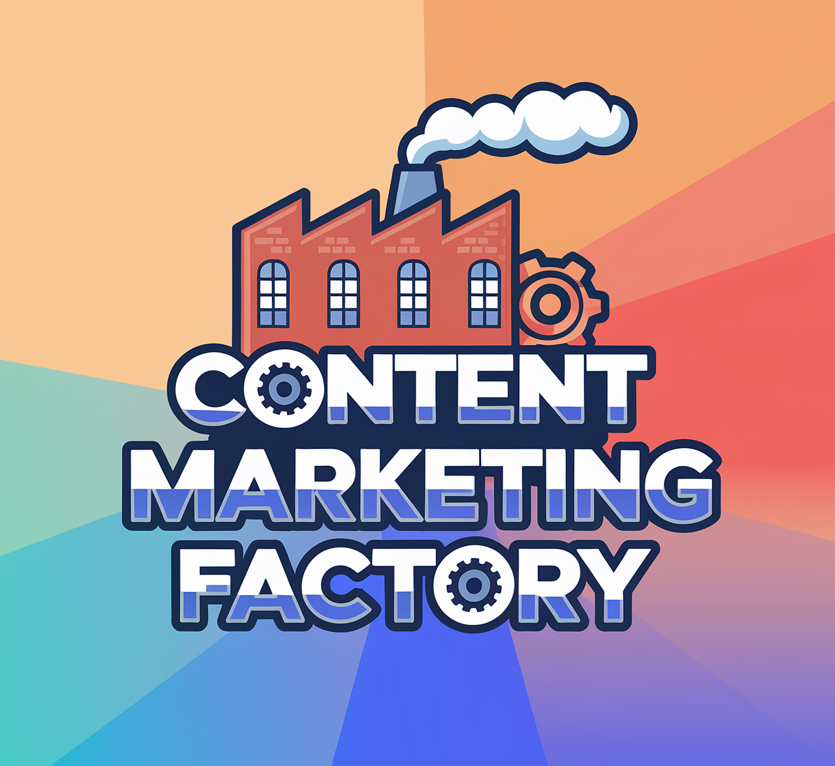The content marketing landscape has undergone a significant transformation in recent years, largely due to the integration of artificial intelligence. As a marketer who’s been in the trenches for over a decade, I’ve seen firsthand how AI has shifted from a buzzword to an indispensable asset in our toolkit.
AI’s impact on content marketing is multifaceted. It’s not just about automating repetitive tasks; it’s about enhancing human creativity, providing data-driven insights, and enabling personalization at scale. From generating ideas to optimizing content for search engines, AI tools are helping marketers work smarter, not harder.
The benefits are clear: increased productivity, improved content quality, better audience targeting, and ultimately, higher ROI. However, it’s crucial to understand that AI is not a replacement for human creativity and strategic thinking. Instead, it’s a powerful ally that can amplify our efforts and free up time for higher-level tasks.
As we dive into the top 20 AI content marketing tools, keep in mind that the goal is to find the right balance between AI assistance and human touch. Let’s explore how these tools can revolutionize your content marketing strategy.
Top 20 AI Content Marketing Tools
1. Jasper AI
Jasper AI, formerly known as Jarvis, is a game-changer in the world of AI-powered content creation. As someone who initially struggled with writer’s block, I found Jasper to be an invaluable assistant in overcoming this hurdle.
Key features:
- Generates high-quality content for blogs, social media, and ads
- Offers multilingual support
- Provides various content templates for different purposes
My experience: When I first used Jasper to draft a blog post, I was amazed at how it could take my initial ideas and expand them into well-structured paragraphs. It’s like having a brainstorming partner who never runs out of ideas.
2. SEMrush
SEMrush is more than just an SEO tool; it’s a comprehensive marketing suite with powerful AI-driven features.
Key features:
- Offers in-depth SEO analysis and recommendations
- Provides content marketing insights and topic research
- Enables competitive analysis and backlink auditing
3. Phrasee
Phrasee specializes in generating and optimizing marketing copy, particularly for emails and social media.
Key features:
- Uses AI to generate on-brand language
- Optimizes subject lines and social media posts
- Provides performance predictions for marketing copy
4. Surfer SEO
Surfer SEO is a game-changer for content optimization, using data-driven insights to improve search engine rankings.
Key features:
- Offers content optimization guidelines based on top-ranking pages
- Provides keyword research and content planning tools
- Integrates with Google Docs for real-time optimization
5. Zapier
While not exclusively a content marketing tool, Zapier’s automation capabilities make it invaluable for streamlining marketing workflows.
Key features:
- Connects various apps and tools to automate tasks
- Enables creation of complex workflows without coding
- Saves time on repetitive marketing tasks
6. Albert.ai
Albert.ai is an AI-powered platform that autonomously manages digital advertising campaigns.
Key features:
- Optimizes ad performance across multiple channels
- Uses machine learning to improve campaign results over time
- Provides detailed insights and reporting
7. PhotoRoom
Visual content is crucial in marketing, and PhotoRoom uses AI to simplify image editing.
Key features:
- Removes image backgrounds automatically
- Enables easy creation of product photos and social media visuals
- Offers batch processing for multiple images
8. Acquisio
Acquisio focuses on automating and optimizing PPC campaigns across various platforms.
Key features:
- Uses AI to optimize bidding strategies
- Manages budget allocation across multiple ad platforms
- Provides detailed performance reports and insights
9. Headlime
Headlime specializes in generating compelling landing pages and marketing copy.
Key features:
- Offers AI-generated templates for various marketing materials
- Focuses on conversion optimization
- Provides a user-friendly interface for quick content creation
10. Browse AI
Browse AI automates web scraping tasks, making it easier for marketers to gather valuable data.
Key features:
- Extracts data from websites without coding
- Enables automated monitoring of competitor websites
- Provides data in easy-to-use formats for analysis
11. Content at Scale
This tool is designed specifically for generating long-form SEO-optimized blog posts.
Key features:
- Creates in-depth articles on various topics
- Integrates SEO best practices into generated content
- Offers customization options to match brand voice
12. Optimove
Optimove uses AI to drive customer retention through personalized marketing campaigns.
Key features:
- Analyzes customer behavior to predict future actions
- Enables hyper-segmentation for targeted campaigns
- Provides multichannel campaign orchestration
13. Copy.ai
Copy.ai is another powerful AI writing assistant that can help with various content types.
Key features:
- Generates blog posts, social media content, and ad copy
- Offers a wide range of templates for different marketing needs
- Provides a user-friendly interface for quick content creation
14. MarketMuse
MarketMuse uses AI to assist with content strategy and optimization.
Key features:
- Provides content briefs and outlines
- Offers keyword research and content gap analysis
- Enables content optimization for better search engine rankings
15. BuzzSumo
BuzzSumo is an advanced content marketing toolkit that leverages AI for content research and analysis.
Key features:
- Identifies trending topics and popular content in your niche
- Enables influencer discovery for content promotion
- Provides content analysis and performance tracking
16. ChatGPT
While not specifically designed for marketing, ChatGPT’s natural language processing capabilities make it a versatile tool for content creators.
Key features:
- Generates human-like text for various purposes
- Assists with brainstorming and idea generation
- Can be used for chatbot development and customer service automation
17. Smartly.io
Smartly.io focuses on automating and optimizing social media advertising campaigns.
Key features:
- Uses AI to optimize ad creative and targeting
- Enables automated A/B testing of ad variations
- Provides cross-platform campaign management
18. Lately.ai
Lately.ai specializes in repurposing long-form content into social media posts.
Key features:
- Automatically generates social media content from longer pieces
- Uses AI to identify the most engaging snippets of content
- Offers social media scheduling and analytics
19. Narrato AI
Narrato is an all-in-one content creation platform with AI-powered features.
Key features:
- Assists with content ideation and keyword research
- Offers AI writing and editing tools
- Provides content workflow management features
20. AdCreative.ai
AdCreative.ai focuses on generating visual content for advertising campaigns.
Key features:
- Creates AI-generated ad visuals based on brand guidelines
- Offers A/B testing for ad creatives
- Provides performance predictions for ad variations
Comparison Table of AI Content Marketing Tools
Here’s a comprehensive table comparing the key features, pricing, and use cases of the top AI content marketing tools:
| Tool | Price (Monthly) | Use | Link |
|---|---|---|---|
| Jasper AI | Starting at $39 | AI content creation for blogs and ads | Jasper |
| SEMrush | Pro: $129.95, Guru: $249.95, Business: $499.95 | SEO and content marketing | SEMrush |
| Phrasee | Pricing on request | Email and social media copy optimization | Phrasee |
| Surfer SEO | Starting at $59 | Content optimization for SEO | Surfer SEO |
| Zapier | Free; Paid plans start at $20 | Workflow automation | Zapier |
| Albert.ai | Pricing on request | Automated digital advertising | Albert |
| Drift | Starting at $2,500 | Conversational AI for lead qualification | Drift |
| MarketMuse | Starting at $149 | Content strategy and optimization | MarketMuse |
| Copy.ai | Free; Unlimited for $36 | Automated copywriting | Copy.ai |
| Narrato AI | Starting at $36 | Content creation and keyword research | Narrato |
| ChatGPT | Starting at $11.99 | Text generation for various formats | OpenAI |
| Acquisio | Pricing on request | PPC campaign management | Acquisio |
| Lately.ai | Starting at $19 | Social media content generation | Lately |
| Optimove | Pricing on request | Customer retention marketing | Optimove |
| Smartly.io | Pricing on request | Ad campaign management | Smartly.io |
| Kafkai | Writer: $29, Newsroom: $49 | Automated blog writing | Kafkai |
| HelpHub | Starting at $249 | AI chat support | HelpHub |
| Trellis | Pricing on request | E-commerce marketing optimization | Trellis |
| Hootsuite | Basic plan starts at $58 | Social media management | Hootsuite |
How to Choose the Right AI Tool for Your Business
Selecting the right AI content marketing tool can be overwhelming given the plethora of options available. Here’s a step-by-step guide to help you make an informed decision:
- Identify your needs: Start by pinpointing your specific content marketing challenges. Are you struggling with content creation, SEO optimization, or social media management?
- Set your budget: AI tools come with varying price tags. Determine how much you’re willing to invest and look for options that offer the best value for your budget.
- Consider your team’s technical skills: Some AI tools require more technical know-how than others. Ensure the tool you choose aligns with your team’s capabilities.
- Check for integration capabilities: Look for tools that can integrate seamlessly with your existing marketing stack to enhance overall efficiency.
- Evaluate the user interface: A user-friendly interface can significantly impact adoption rates and productivity. Look for tools with intuitive designs.
- Read user reviews: Don’t just rely on marketing materials. Check out what other users are saying about the tool’s performance, reliability, and customer support.
- Take advantage of free trials: Many AI tools offer free trials. Use this opportunity to test the tool in your specific context before committing.
- Consider scalability: Choose a tool that can grow with your business. It should be able to handle increased workload as your content marketing efforts expand.
- Assess the quality of AI-generated content: For tools that create content, evaluate the quality and relevance of the output. It should align with your brand voice and meet your quality standards.
- Look for customization options: The ability to fine-tune AI algorithms to your specific needs can be a significant advantage.
The Future of AI in Content Marketing
As we look ahead, the role of AI in content marketing is set to become even more significant. Here are some trends and predictions:
- Hyper-personalization: AI will enable marketers to create highly personalized content experiences at scale, tailoring messages to individual preferences and behaviors.
- Predictive analytics: Advanced AI algorithms will provide more accurate predictions about content performance, helping marketers make data-driven decisions.
- Voice search optimization: With the rise of voice-activated devices, AI will play a crucial role in optimizing content for voice search queries.
- Automated content creation: While human creativity will always be valuable, AI will take on more content creation tasks, particularly for data-driven content like financial reports or sports recaps.
- Enhanced visual content: AI tools for image and video creation and editing will become more sophisticated, making high-quality visual content more accessible.
- Real-time content optimization: AI will enable real-time adjustments to content based on user engagement and performance metrics.
- Improved natural language processing: AI will better understand context and nuance in language, leading to more sophisticated chatbots and virtual assistants.
- Ethical AI: As AI becomes more prevalent, there will be an increased focus on ethical considerations, transparency, and responsible use of AI in marketing.
The future of AI in content marketing is exciting and full of potential. However, it’s important to remember that AI is a tool to enhance human creativity and strategy, not replace it. The most successful marketers will be those who can effectively leverage AI while maintaining a human touch in their content.
TL;DR Summary
AI content marketing tools are revolutionizing the way businesses create, optimize, and distribute content.
From generating blog posts and social media content to optimizing SEO and managing ad campaigns, these tools offer a wide range of capabilities.
Top tools include Jasper AI for content creation, SEMrush for SEO, Phrasee for email marketing, and Surfer SEO for content optimization.
When choosing an AI tool, consider your specific needs, budget, and team capabilities.
The future of AI in content marketing points towards hyper-personalization, predictive analytics, and more sophisticated content creation. However, the key to success lies in balancing AI capabilities with human creativity and strategic thinking.
Q&A Section
Q1: Are AI content marketing tools suitable for small businesses?
A1: Absolutely! Many AI tools offer scalable solutions that can benefit businesses of all sizes. Small businesses can particularly benefit from the time and resource savings these tools provide.
Q2: Can AI-generated content replace human writers?
A2: While AI can assist with content creation, it’s unlikely to fully replace human writers. AI is best used as a tool to enhance human creativity, provide ideas, and handle routine tasks, allowing human writers to focus on strategy and high-level creativity.
Q3: How do AI content marketing tools impact SEO?
A3: AI tools can significantly improve SEO efforts by providing data-driven insights, automating keyword research, and optimizing content structure. However, it’s important to use these tools in conjunction with a solid understanding of SEO principles.
Q4: Are there any ethical concerns with using AI in content marketing?
A4: Yes, there are ethical considerations. It’s important to be transparent about the use of AI, ensure that AI-generated content is accurate and unbiased, and maintain a balance between automation and human touch.
Q5: How often should I update my AI content marketing tools?
A5: The AI field is rapidly evolving, so it’s a good idea to reassess your tools annually. However, don’t switch tools just for the sake of it – if your current tools are meeting your needs effectively, there’s no need for frequent changes.
AI Content Marketing Tools Quiz
Test your knowledge of AI content marketing tools with this quick quiz!
- Which tool specializes in generating email and social media copy? a) Jasper AI b) Phrasee c) Surfer SEO d) Zapier
- What is the primary function of Surfer SEO? a) Social media management b) Email marketing c) Content optimization for search engines d) PPC campaign management
- Which tool uses AI to remove backgrounds from images? a) PhotoRoom b) AdCreative.ai c) Canva d) Photoshop
- What type of content does Content at Scale specialize in creating? a) Social media posts b) Email newsletters c) Long-form SEO blog posts d) Video scripts
- Which tool focuses on repurposing long-form content into social media posts? a) Hootsuite b) Buffer c) Lately.ai d) Sprout Social
Answers:
- b) Phrasee
- c) Content optimization for search engines
- a) PhotoRoom
- c) Long-form SEO blog posts
- c) Lately.ai
Scoring:
0-1 correct: Novice – Time to dive deeper into AI content marketing tools!
2-3 correct: Intermediate – You have a good foundation, but there’s room to expand your knowledge.
4-5 correct: Expert – Impressive! You’re well-versed in AI content marketing tools.




